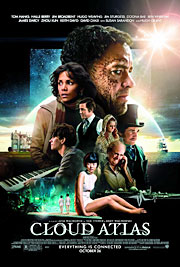
- Rated R
- Drama
- 2012
All photos © Warner Bros.
Reviewed by Jason Zingale
()
fter the disaster of “Speed Racer,” it’s not surprising that the Wachowskis decided to take a few years off to let their egos heal, but what is surprising is that they’ve marked their long-awaited return with a movie even more ambitious. Co-directed by German filmmaker Tom Tykwer, “Cloud Atlas” is unlike anything you’ve ever seen and probably ever will see again. Unfortunately, it’s also bloated (at 172 minutes, it feels almost twice as long) and incredibly self-indulgent, resulting in one of the most frustrating wastes of potential in a while.
Based on David Mitchell’s 2004 novel of the same name, “Cloud Atlas” tells six different stories that are loosely connected, taking place over different time periods, with all of the actors playing multiple roles. In 1849, an American notary (Jim Sturgess) on his way back from the South Pacific makes friends with a stowaway slave (David Gyasi), while a greedy doctor (Tom Hanks) plots against him. In 1931, an English musician (Ben Whishaw) accepts a job as the amanuensis for a respected composer (Jim Broadbent), but threatens to eclipse him with a masterpiece of his own. In 1970s San Francisco, a reporter (Halle Berry) is hunted by an assassin for hire (Hugo Weaving) when she uncovers the truth about a nuclear power plant. In present day London, a publisher (Broadbent) is unwittingly confined to a nursing home by his bitter older brother (Hugh Grant) when he goes on the run from his gangster client. In Neo Seoul 2144, a genetically-engineered clone (Doona Bae) is freed to lead a rebellion against the totalitarian government. And in a post-apocalyptic future, a primitive goat herder (Hanks) is visited by one of the last survivors of a more sophisticated civilization (Berry).
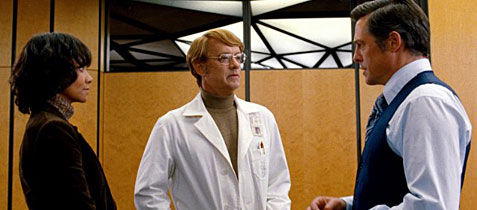
It’s a lot to take in, but it’s not nearly as confusing as it sounds. Though Mitchell’s book was presented in chronological order for the most part, the film version jumps back and forth between each story with the attention span of a goldfish, and it would probably feel like a jumbled mess if it weren’t for the impressive work of editor Alexander Berner. He deserves a great deal of credit for not only making the movie flow coherently, but also addressing the cyclical nature of the six vignettes by piggybacking from one story to the next using the similar themes within each. In this respect, the decision to use actors in multiple roles actually pays off, but only in certain instances where those parallels exist.
The rest of the stunt casting feels gimmicky and totally unnecessary, and the poor make-up effects don’t help, especially those that transverse the boundaries of gender and race (although the Asians look more like "Star Trek" villains), which are borderline offensive. It also results in some pretty terrible performances from its ensemble, and Tom Hanks is one of the worst offenders. He hasn't exactly been provided the best material (like in the post-apocalyptic story, where he speaks some form of Cajun-style gibberish that the audience can barely understand), but he's just as much to blame.
Some vignettes fare much better than others, and though it ultimately comes down to personal preference, the contemporary story starring the hilarious Jim Broadbent and the “Blade Runner”-inspired sci-fi tale are clear standouts. Regardless of how you rank each segment, though, it’s actually quite fun to watch a movie that dabbles in so many different genres. If only it wasn’t so maddening to sit through. One minute brilliant and the next idiotic, “Cloud Atlas” struggles to make all the time-jumping and genre-hopping mean anything in the end. The film is also a bit of a paradox in that it feels too long yet somehow incomplete, and it fails to live up to the epic scope of its narrative structure. Nevertheless, “Cloud Atlas” is the type of once-in-a-lifetime cinematic experience that begs to be seen, because even if you don’t necessarily like it, you’ll at least respect it.
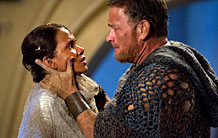 |
 |
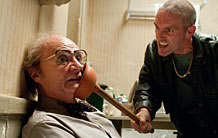 |
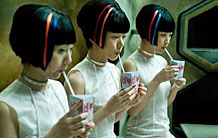 |
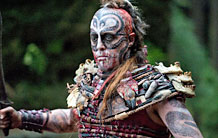 |
 |
You can follow us on Twitter and Facebook for content updates. Also, sign up for our email list for weekly updates and check us out on Google+ as well.











